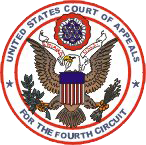March
2013
Fourth Circuit Finds Premiums Collected Under FEMA’s National Flood Insurance Program Cannot Be Taxed By South Carolina Municipalities
Last week, the United States Court of Appeals for the Fourth Circuit reversed a district court’s denial of a motion for summary judgment filed by four insurance companies in an action “seeking a declaration that South Carolina municipalities are entitled to assess municipal business license taxes based on, or measured by, the total flood insurance premiums collected in the particular municipality by insurance companies under an arrangement with the Federal Emergency Management Agency (‘FEMA’).” Municipal Assoc. of South Carolina v. USAA General Indemn. Co., — F.3d —, 2013 WL 765710 (4th Cir. 2013). More specifically, the Court found that the district court erred in concluding that the tax was not barred by the doctrine of sovereign immunity. Id.
In the underlying case, four insurers — Hartford Fire Insurance Company, Nationwide Mutual Fire Insurance Company, Service Insurance Company, Inc., and USAA General Indemnity Company — argued that taxes imposed by certain South Carolina municipalities based upon premiums collected on Standard Flood Insurance Policies (“SFIPs”) pursuant to the National Flood Insurance Program (the “NFIP”) were barred by the doctrines of preemption and sovereign immunity. Id. NFIP is a program designed in part to make “federally subsidized flood insurance available in flood-prone areas.” Id. FEMA regulations allow private insurance companies participating in the Write-Your-Own Program (“WYO Companies”) to provide SFIPs to the public under their own names as insurers. Id. Under the terms of the arrangement between FEMA and the WYO Companies, WYO Companies that collect flood insurance premiums must remit the premiums, less a scheduled amount as reimbursement for expenses (“Expense Allowance”), to FEMA to deposit in the National Flood Insurance Fund. Id. Accordingly, WYO Companies profit only when their actual expenses are less than the Expense Allowance. Id.
After rejecting the insurers’ argument that federal law preempted the tax and/or that the insurers were immune from the tax as “fiscal agents” of the federal government, the United States District Court for the District of South Carolina denied the insurers’ motion for summary judgment and granted partial summary judgment in favor of the Municipal Association of South Carolina (“MASC”), a non-profit organization whose membership consists of almost all of the municipalities in the State of South Carolina. Id. On appeal, however, the district court’s decision was reversed. Id.
The Fourth Circuit found that “[t]he flood insurance premiums are federal property . . . and the WYO Companies, in their operation of and participation with the NFIP, are federal instrumentalities so closely connected with the federal government that they are immune from taxation.” Id. Thus, the Court noted that, under the doctrine of sovereign immunity, neither the premiums nor the WYO Companies could be taxed without the federal government’s consent. Id. Because the federal government did not consent to the tax at issue in this case, the Court concluded that the tax was invalid. Id.
To read the full text of the Fourth Circuit’s decision, click here.
Should you have any questions regarding this case or any other insurance law issue, contact GL today.




